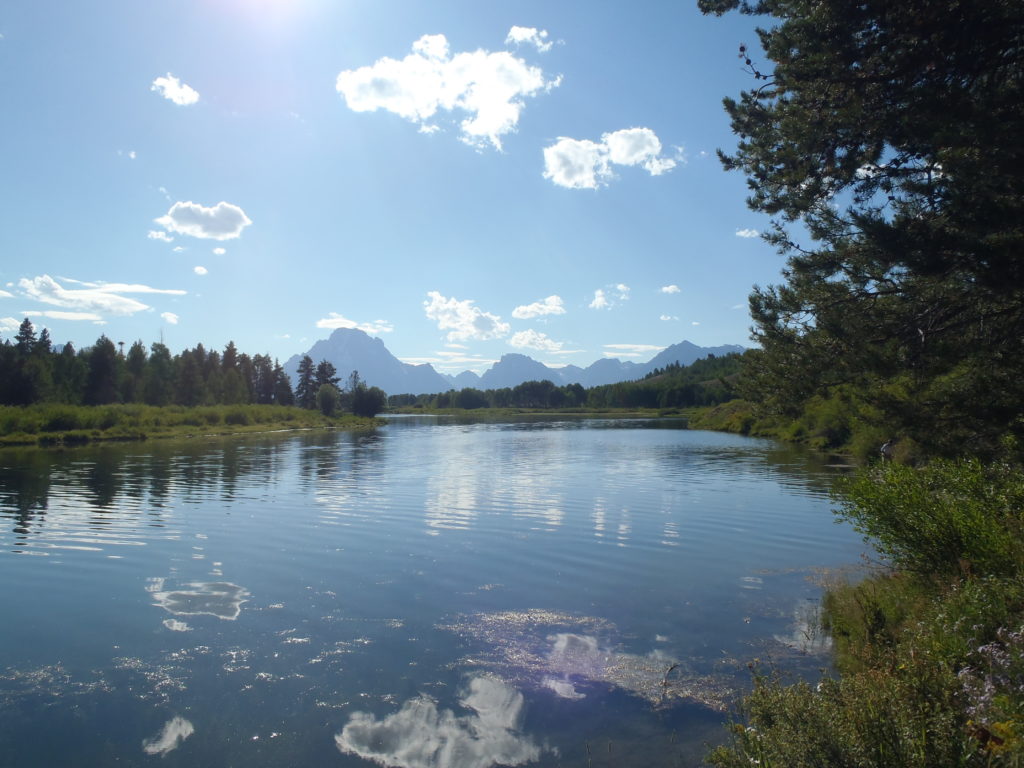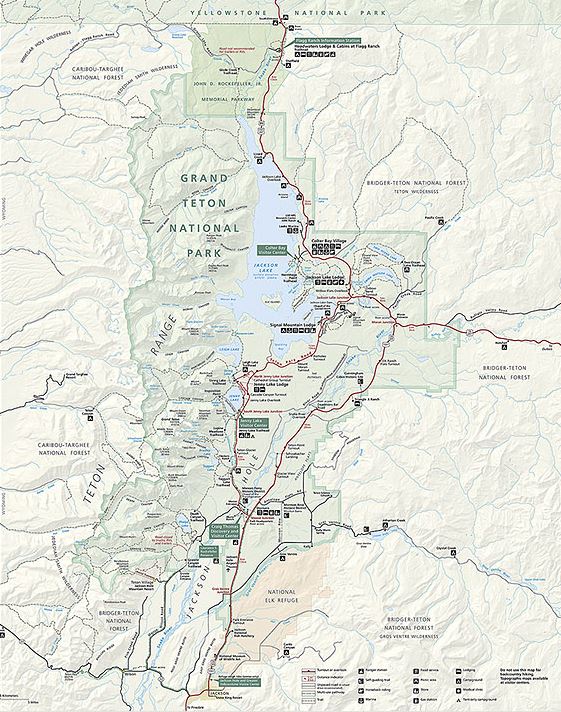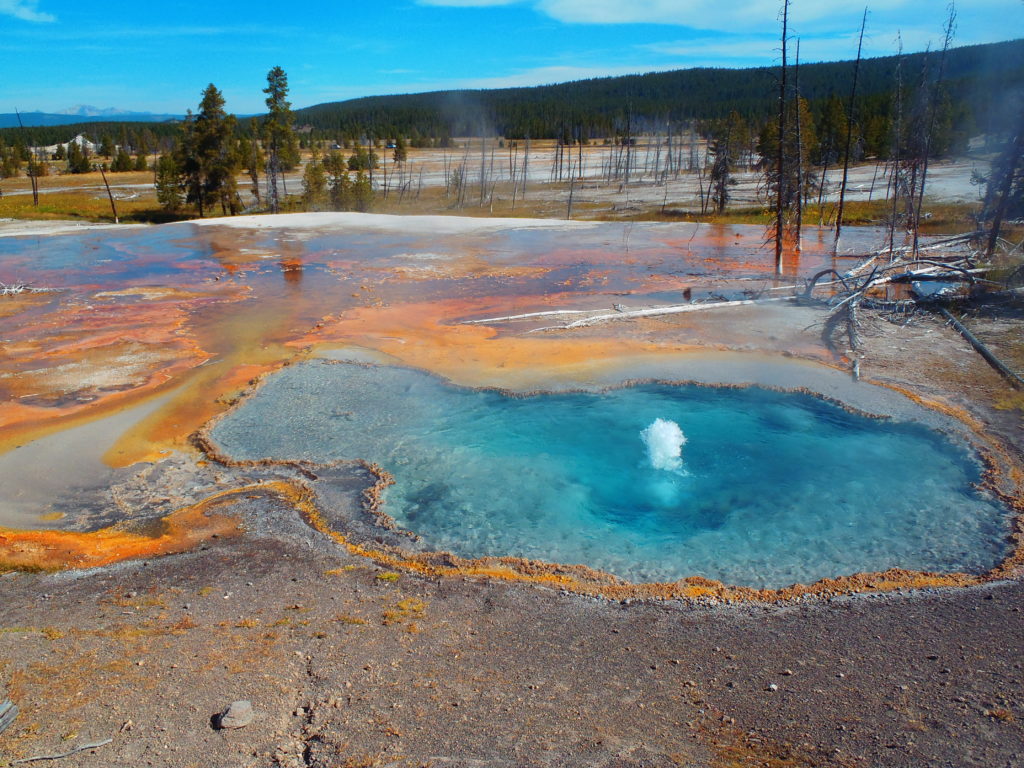Grand Teton (in the fall)
NATIONAL PARK

By DIENEKE
note: I have had the great fortune to visit The Tetons twice! Check this post out for a completely different experience of Grand Teton (in the spring).
The third day of our I-80 Road Trip in the Parks, we entered Grand Teton. The Teton Range sets behind a foreground of pristine lakes, alpine terrain and rugged wildlife. It rises more than 7,000 feet above the sagebrush-dominated valley of Jackson Hole. The Tetons are one of the youngest mountain ranges in North America at a sprightly 10 million years old (compared to the Rockies at 60-80 million years or the Appalachians more than 300 million years old) and as such, erosion has had much less time to work. So their dramatic, jagged peaks remain standing high.
We arrived via the north driving through Yellowstone National Park from West Yellowstone. The Teton Range is oriented north-south, so we were greeted by the northern end as we approached Colter Bay. This bay sits on the shore of Jackson Lake. We took an easy 2-mile walk down the Lakeshore Trail, becoming familiar with the looming range in the distance.
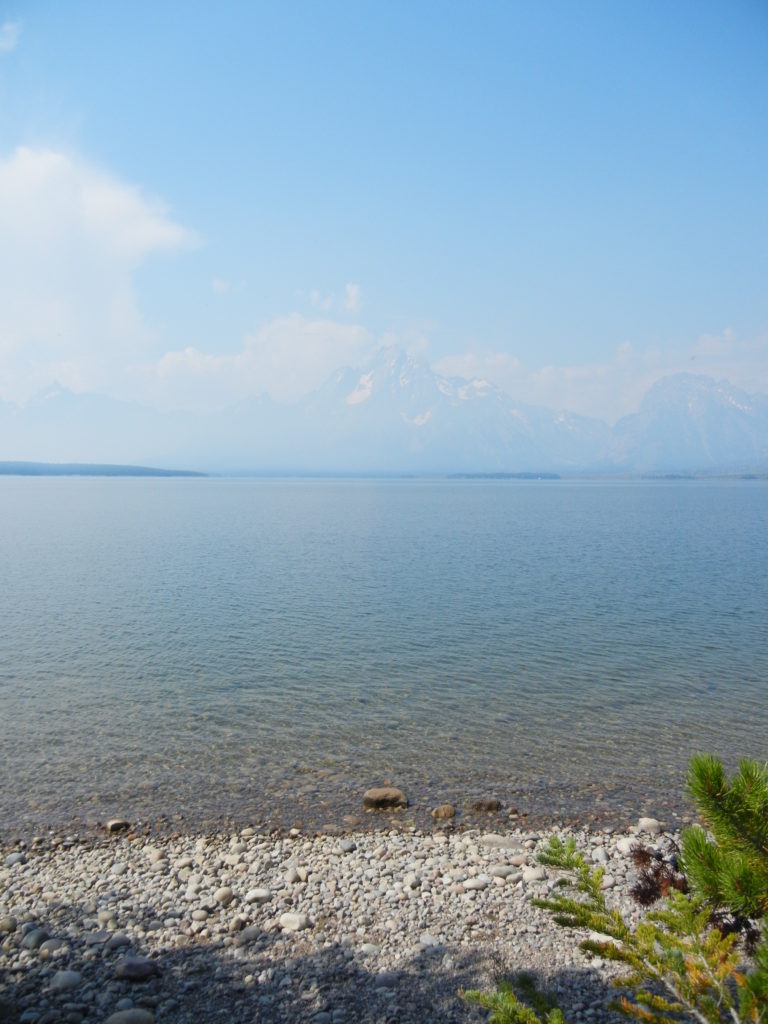
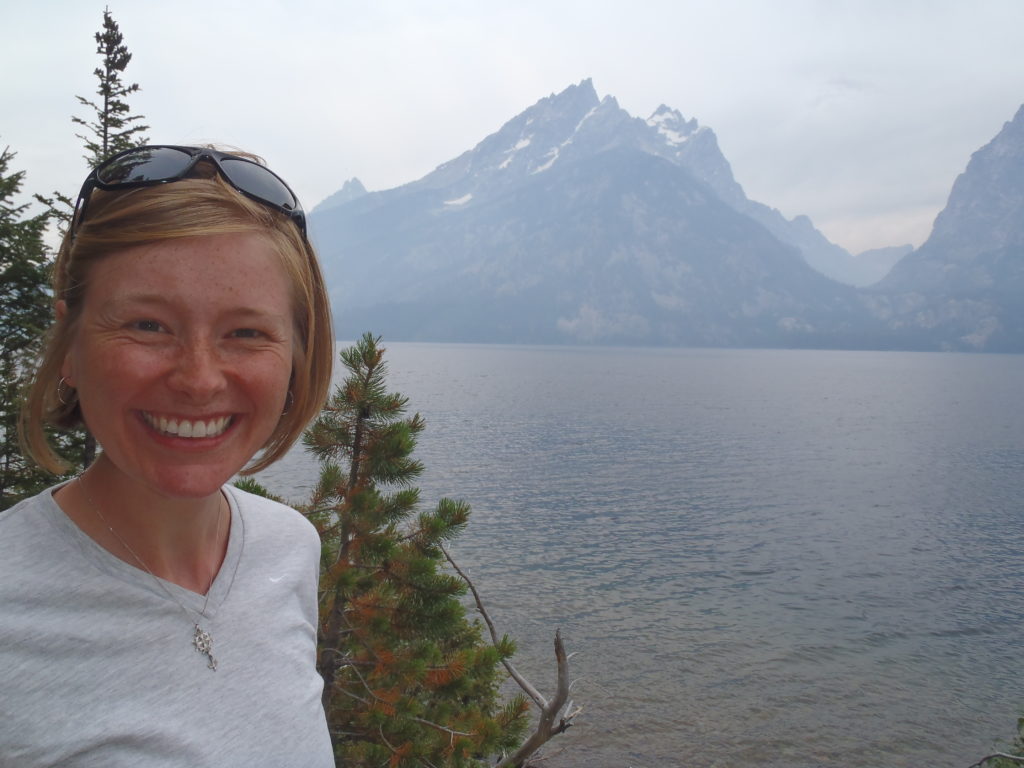
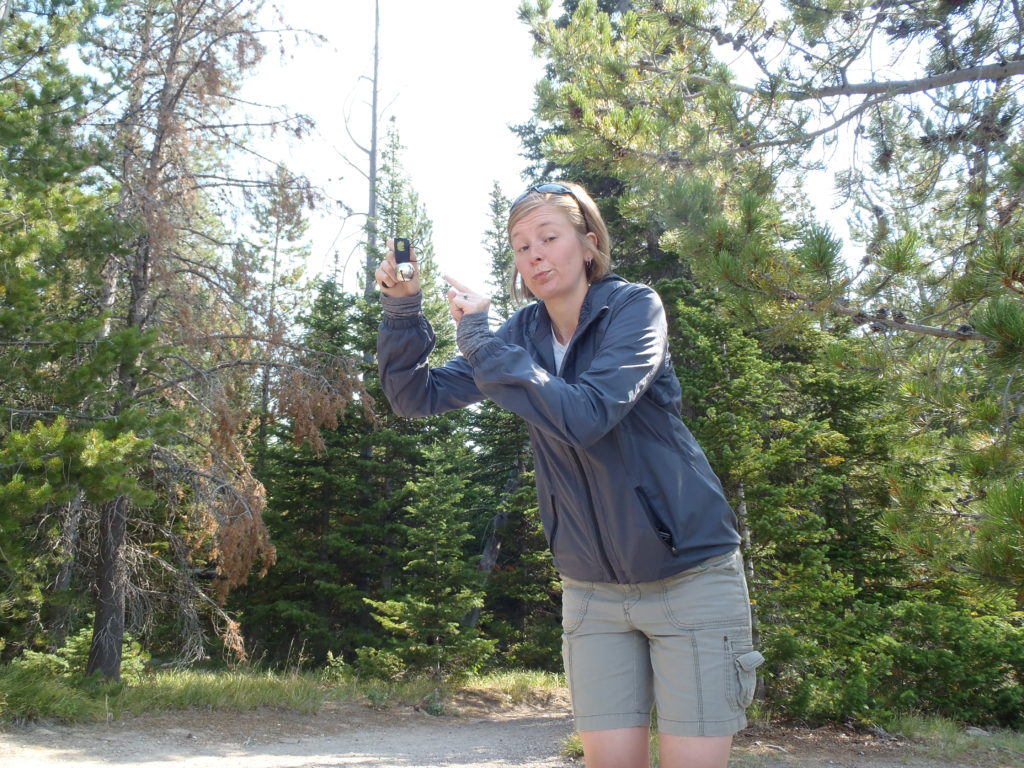
Which leads me to a short public service announcement about animal safety. 61 species of mammals live beneath the towering peaks of the Teton Range and are found in all four of the major areas of the park: alpine, forest, sagebrush flats and wetlands. Bears are one of the most iconic animals found here; they are awesome and enormous and command a great deal of respect. Almost 10 years ago, I was pretty proud of my bear bell (with that silly face above) but in recent years, rangers suggest the safest way to hike is to talk to the bear, not to ring its dinner bell. Of all the miles we have hiked over the years, I’m proud to say we have had minimal close sightings on the trails (though the animals likely saw us). I’ve familiarized myself with Disney’s classic “Bear Necessities” and sing it to all the wildlife in bear country; apologies to the humans who’ve had to listen!
We struck out at Willow Flats Overlook due to, ironically, bear activity, but we heeded the signs and did not enter the trail!
Continuing south on John D Rockefeller Jr Pwy, we took Teton Park Road headed west and got our learn on at Jackson Lake Dam thanks to the resident hydropower engineer, Brandon!
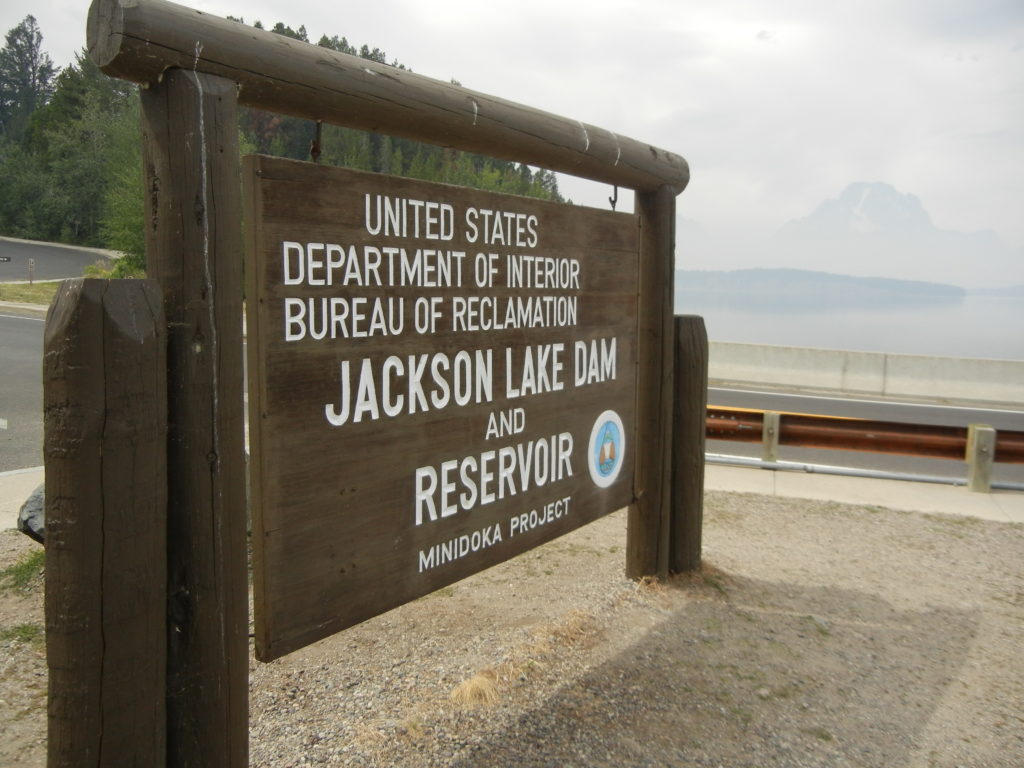
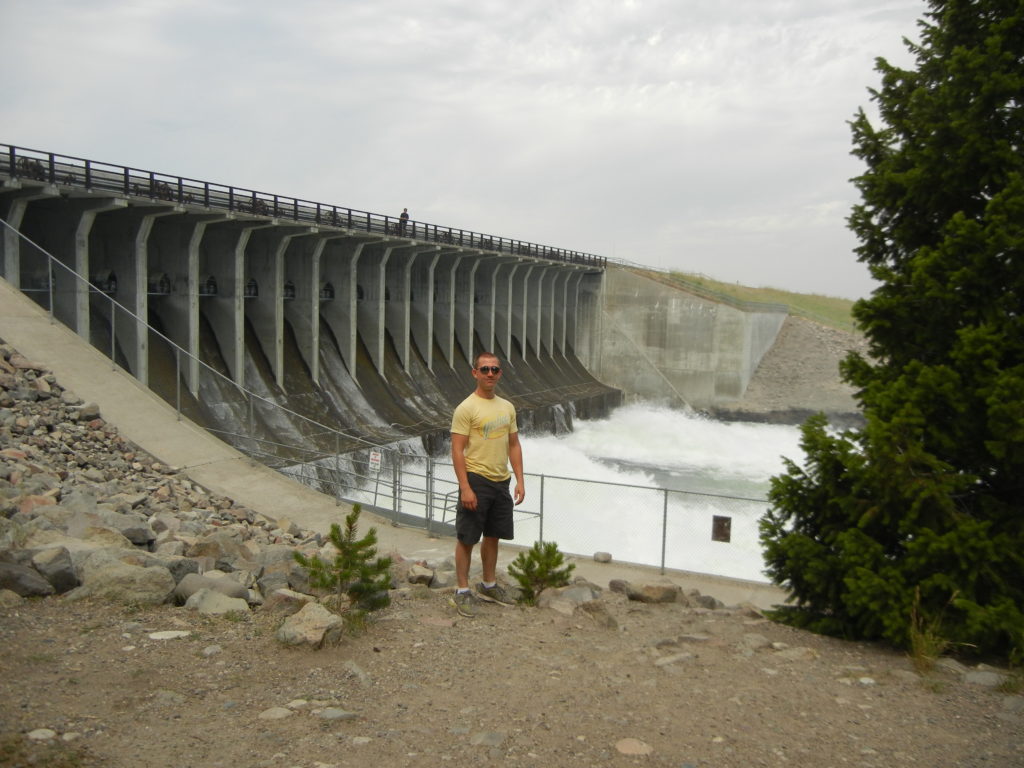
A short distance from the dam, we turned east onto Signal Mountain Road for spectacular views.
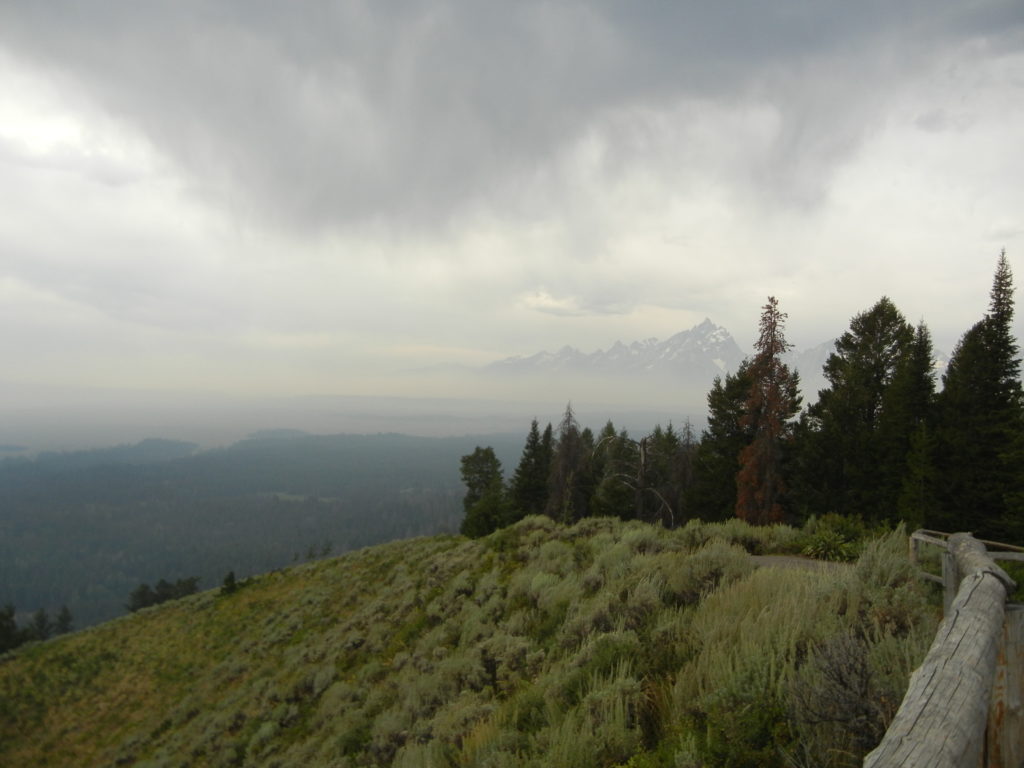
Every turnout along the Park Road was worth it, and with only one big task ahead of us, we took it all in.
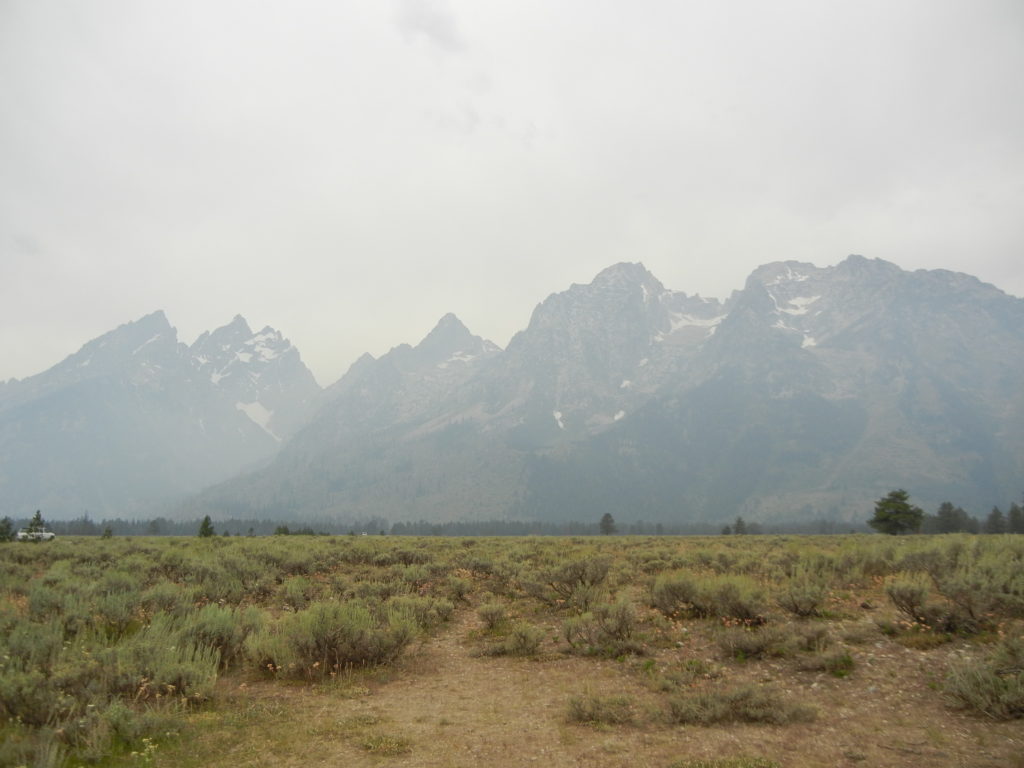
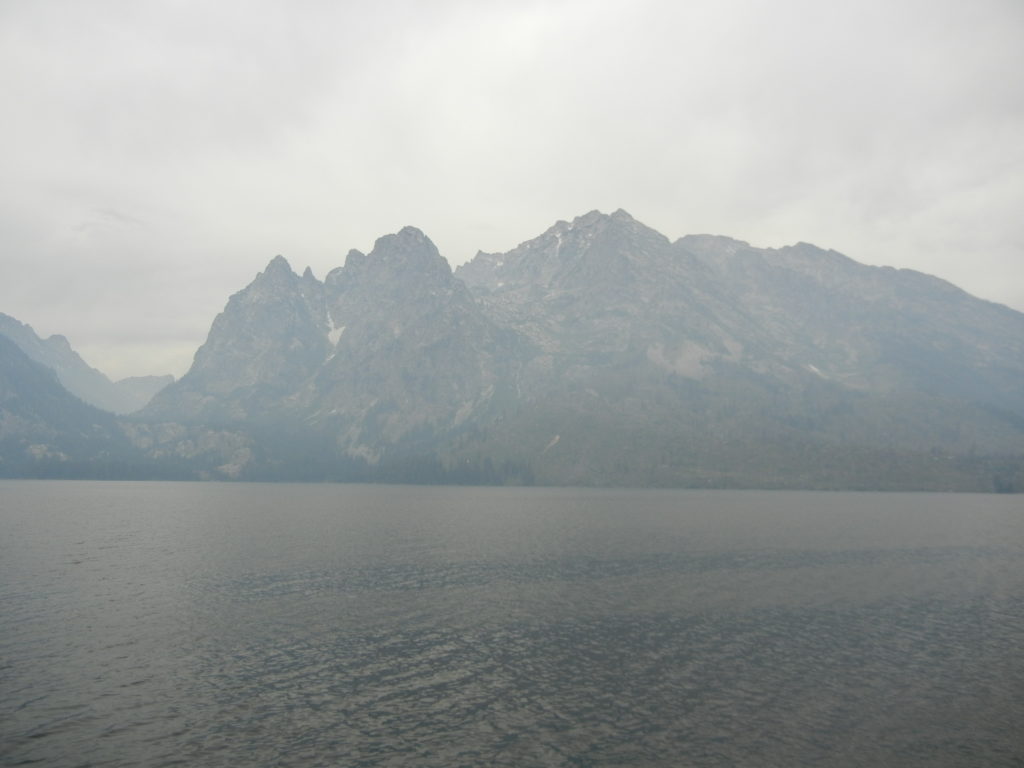
The “big task” was Jenny Lake Loop Trail, not quite the 5.8-miles as we took the shuttle boat to shorten the hike on the return. This trail had stunning views of Jenny Lake, the 100-ft cascading Hidden Falls and the Jackson Hole valley from Inspiration Point. We started from the visitor center and walked around the southern lakeshore.
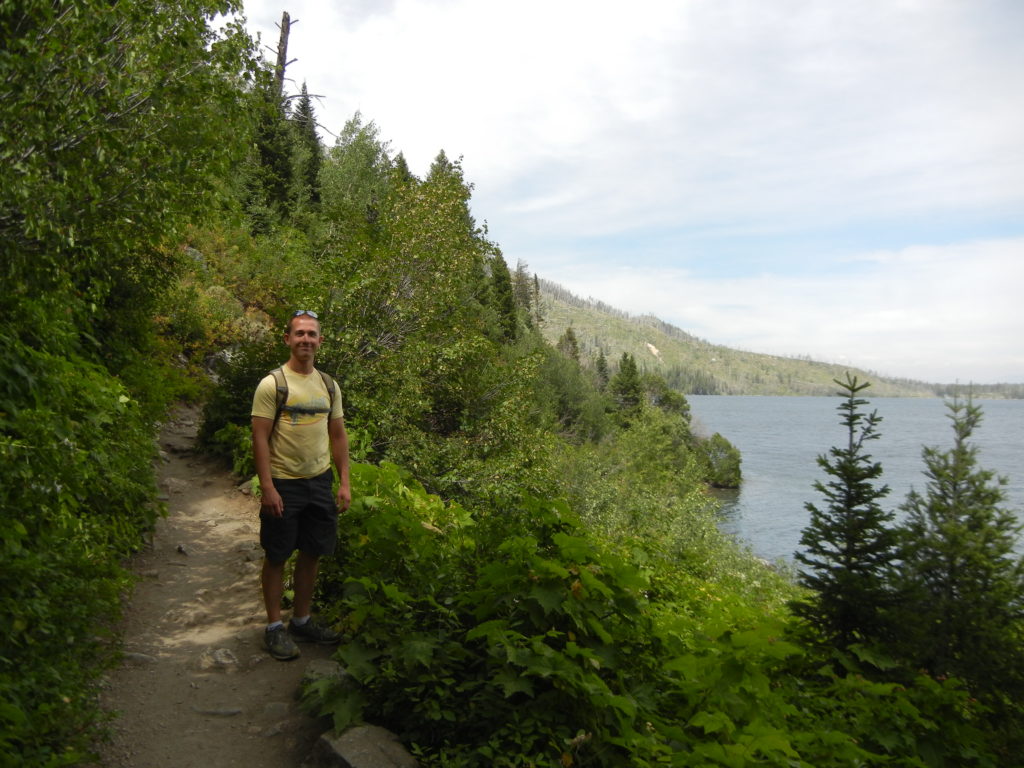
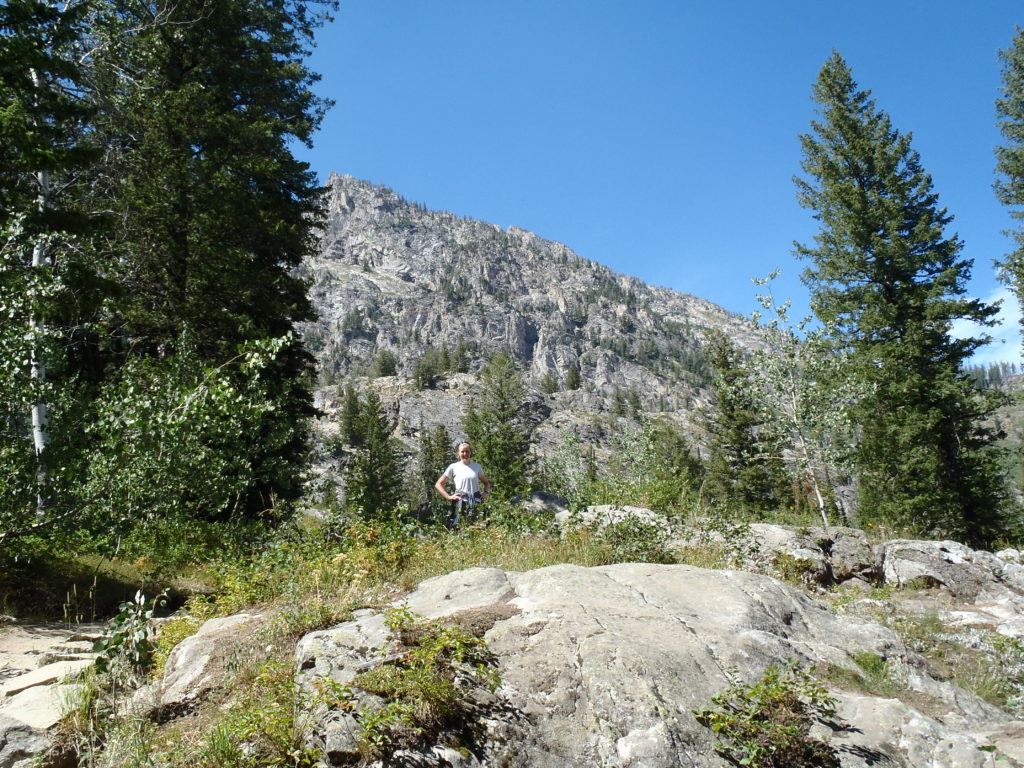

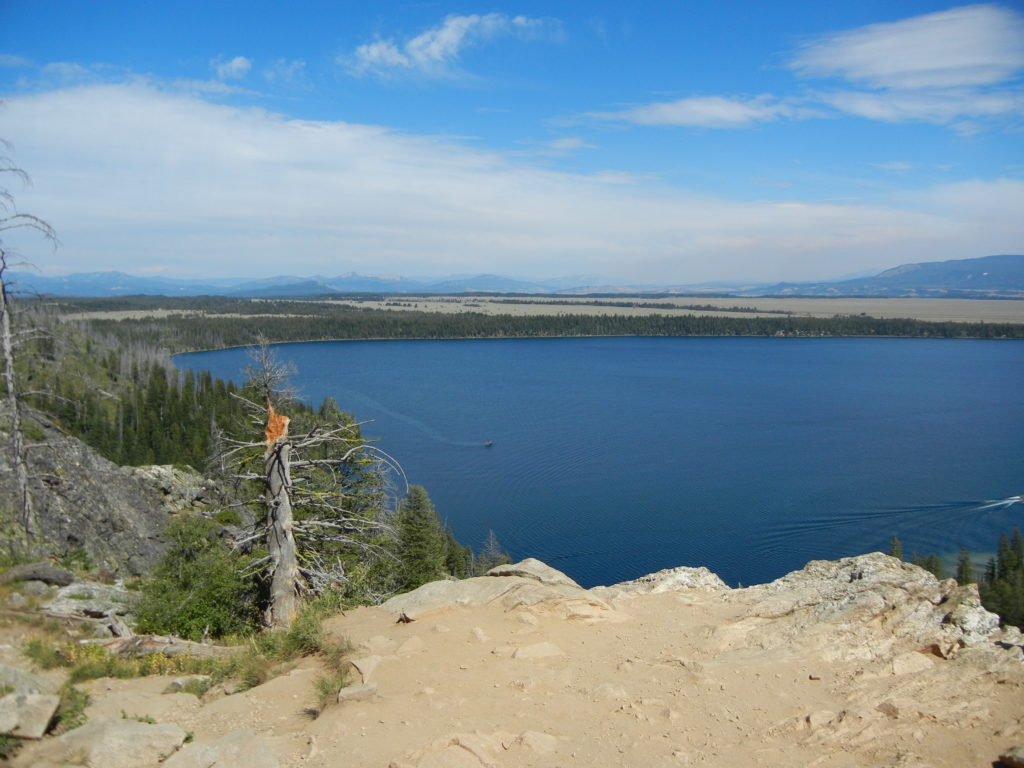
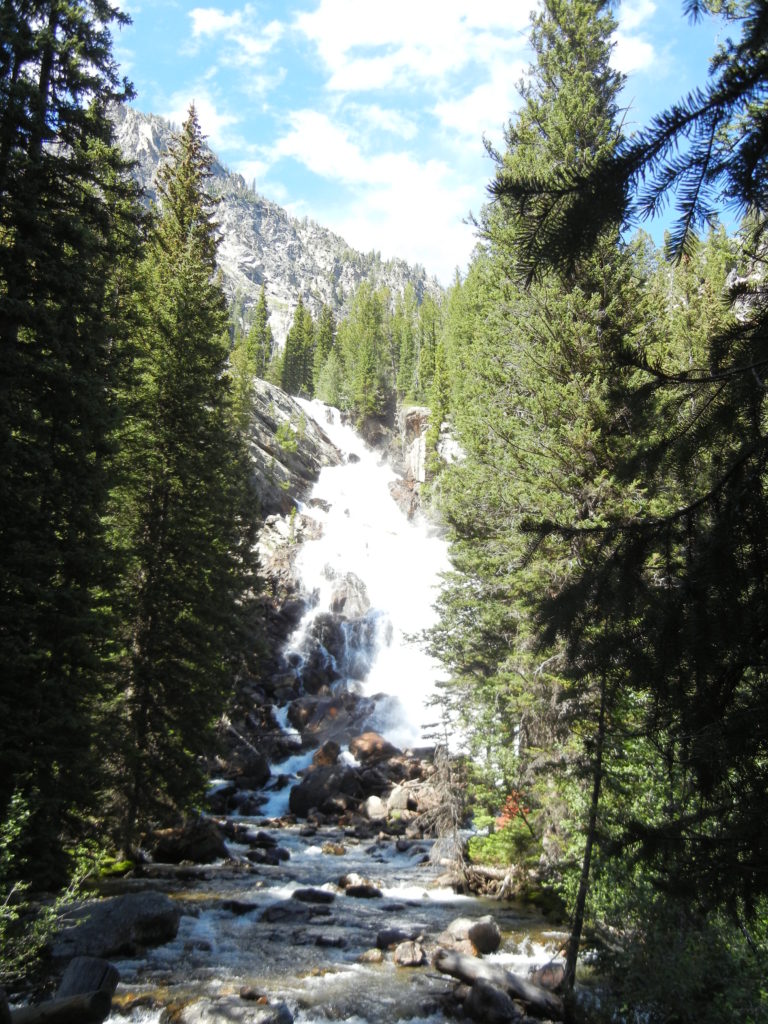
Continuing south, we cheered at our single moose-sighting in none other than “Moose Entrance” just north of Moose Junction. Many consider these animals even more dangerous than bears and they aren’t, shall we say, predictable, so we kept our distance and watched him in the sagebrush. We grabbed a snack at Dornans and then headed back north along Hwy 89/John D. Rockefeller Jr. Memorial Pwy. If you don’t have a couple of days in a park as we did not, you hope for either great weather or a turn of weather. We started off mostly cloudy but lucked out late afternoon with beautiful sun and electric blue sky. So often our experiences are shaped by weather, perhaps a tired body after a good hike and a full belly, so this was the trifecta but my favorite turnout in the park was Oxbow Bend. The Snake River added to the celebrity of the Teton profile and a dramatic good-bye to an epic pairing of National Parks.
